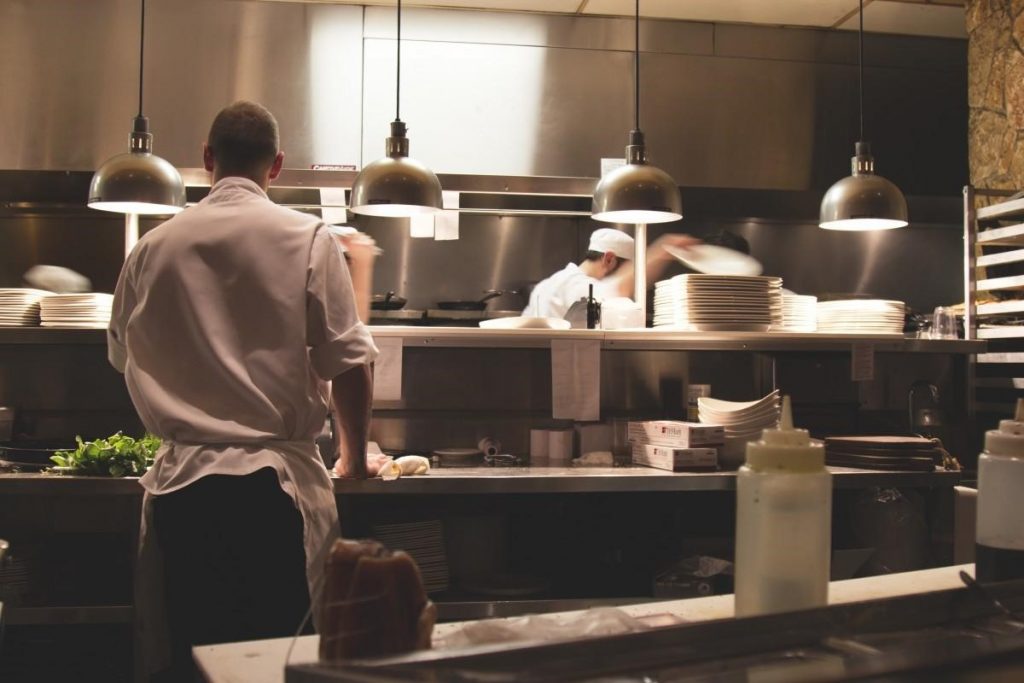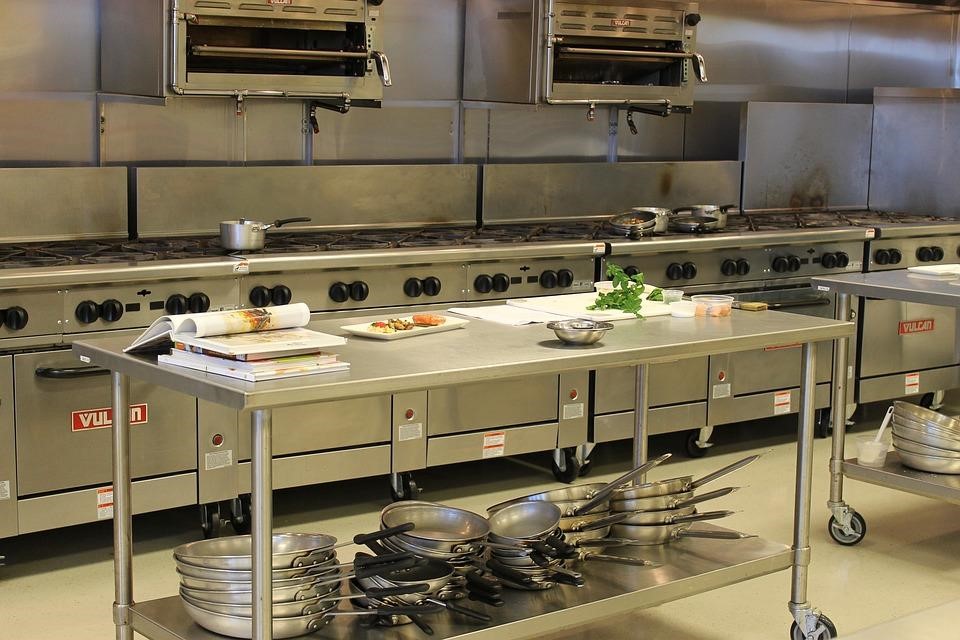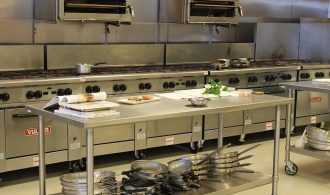High levels of kitchen hygiene are a must in any commercial kitchen. How you ensure this is up to you, but we’ve got five top tips which will cut through the work.

Image Credit
Follow these rules and you’ll have much less task repetition and much higher
hygiene standards.
1. Clean Up After Each Task
Cross-contamination is the
number one hygiene hazard. Rushing to get a plate out and not having clear
staff duties will mean cutting boards, surfaces and utensils can be reused,
mixing raw meat and cooked meat alongside salads and fruit.
So after every task, someone should know it’s their role to completely clean
and sanitize the area, boards and equipment.
It is very important in every work environment to do this especially in
the kitchen. Services like the one at the Cleaning Company In Leicester know
all about what chemicals to use, what policies to follow and can offer trained
staff to come and help you, so why not try sites like https://www.acecleaningcompany.co.uk/.
2. High Dishwasher Temperatures
Commercial dishwashers don’t just clean: they sterilize. To do this the water must reach 82°C during the final wash. So taking an item out (presumably because it’s needed) before the final phase can be a hygiene risk. Let staff know this must be avoided at all costs.

Image Credit
3. Keep It Cool
Likewise, any food products being kept cool need to be kept at an appropriate and consistent temperature. This is especially important in a display freezer, which likely needs constant accessibility. Your freezer should clearly show its temperature and have a high-quality door seal. If the temperature fluctuates, this can lead to bacterial growth.
4. Wash All Fruit and Veg
Washing fruit, salads and veg
does more than remove dirt: it also reduces harmful bacteria and pesticides.
But a quick rinse in water isn’t enough here – you need a fruit and veg wash
and then let it soak. Some restaurants recommend a 20-minute soak to really
get the soil off. Not every order can be prepped, however, so a good
plant-based non-biocidal formulation is key.
5. Good Staff Training
But by far the most efficient
and cost-effective way to good kitchen hygiene is via good staff training. On
the top of the list of things to know should be avoiding cross-contamination
and thorough and frequent hand-washing.
It goes without saying that hands need to be washed after visiting the toilet,
smoking, eating and preparing food. But staff should also know to avoid
touching their face or other people too.

